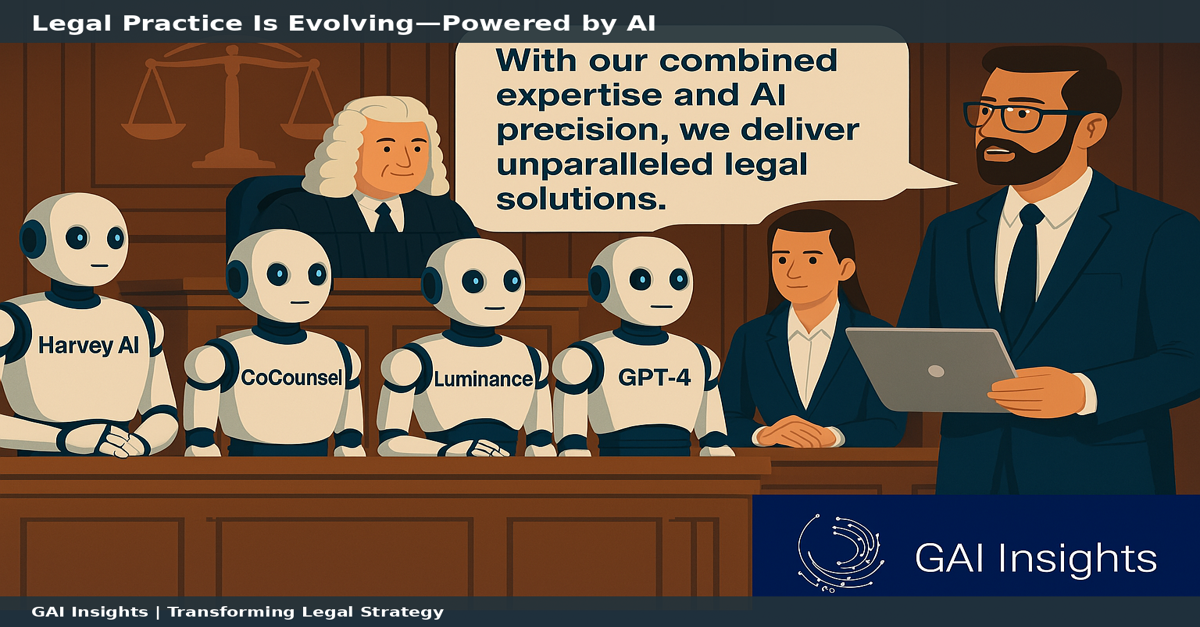The Art of Re-Skilling: Preparing Employees for AI-Fueled Growth
Advancements in GenAI are reshaping the workforce at an unprecedented pace, and employees are nervous. While AI-driven automation is making processes...
 Ethan Mollick's book, "Co-Intelligence: Living and Working with AI," is, in a way, a comprehensive guide on how to effectively leverage generative AI (GenAI) for practical applications in both work and education. It’s a great read, that goes into a lot of what we are seeing in AI today. The book is divided into two main parts: the first part describes AI, and the second part focuses on its practical applications.
Ethan Mollick's book, "Co-Intelligence: Living and Working with AI," is, in a way, a comprehensive guide on how to effectively leverage generative AI (GenAI) for practical applications in both work and education. It’s a great read, that goes into a lot of what we are seeing in AI today. The book is divided into two main parts: the first part describes AI, and the second part focuses on its practical applications.
Key Concepts and Principles: First of all, Mollick introduces four key principles for integrating AI into our daily lives effectively. His first principle: to ‘always invite AI to the table,’ to make sure that AI is involved in decision-making processes. The second principle is to be the ‘human in the loop,’ or HITL, where he’s emphasizing the necessity of human oversight in AI applications. The third principle is to treat AI like a person, but with the added step of defining its role and personality to enhance interactions that you might have. The fourth principle is to assume that this is the worst AI you will ever use! (That prepares users for upcoming rapid advancements in AI technology.)
Also, later, Mollick emphasizes the importance of starting tasks with AI, a concept he refers to as "The Button." He categorizes tasks into three types: tasks best handled without AI intervention (Just Me Tasks), tasks that are assigned to AI but still require human checking (Delegate Tasks), and tasks that are fully managed by AI (Automated Tasks).
AI's Current and Future Impact: The book outlines four of our possible future scenarios for AI development. One scenario that he dreams up has AI reaching a plateau in its capabilities, while another predicts gradual growth. In that scenario, AI gets integrated into daily life slowly, with manageable disruptions. A third scenario anticipates rapid advancements, requiring significant societal adjustments. The fourth scenario imagines AI achieving Artificial General Intelligence (AGI), potentially surpassing human intelligence.
Key Quotes and Insights: Throughout the book, Mollick provides more than a few thought-provoking insights or twists and turns in predictions. He highlights AI's potential to drastically improve productivity, comparing its impact to past technological revolutions like steam power. Mollick talks about the uncertainty surrounding AI's capabilities and future trajectory, emphasizing the need for cautious and ethical deployment.
Detailed Chapter Breakdown The first chapter, "Creating Alien Minds," explores the mysterious capabilities of AI systems and their token prediction mechanisms. In "Aligning the Alien," Mollick discusses the ethical and security challenges posed by AI, including its potential misuse by various entities for harmful purposes.
The third chapter, "Four Rules for Co-Intelligence," discusses the author’s key principles for effective AI integrations and getting this kind of stuff into our society. "AI as a Person," the fourth chapter, advocates treating AI as a quasi-person, or human-like entity, to better understand and utilize its capabilities, while acknowledging AI's off-key brand of quasi-sentience.
In "AI as a Creative," Mollick addresses the paradox of AI creativity, where we balance AI's strengths in generating ideas against its sometimes potent unreliability for precise tasks. "AI as a Coworker" classifies tasks based on AI utility and highlights its potential to level the playing field by improving the performance of less skilled individuals.
"AI as a Coach" argues that human expertise will become more critical as AI advances, with AI serving as a tool to enhance human performance. The final chapter, "AI as of Future," outlines the four future scenarios, exploring their implications for work, society, and ethics.
Conclusion: Mollick's "Co-Intelligence" offers a nuanced and forward-thinking perspective on AI. By integrating AI into daily tasks, treating it as a collaborative entity, and preparing for its rapid evolution, individuals and organizations can harness AI's full potential while navigating its challenges and uncertainties.

Advancements in GenAI are reshaping the workforce at an unprecedented pace, and employees are nervous. While AI-driven automation is making processes...

Businesses want to integrate artificial intelligence (AI) into their operations. But they may have concerns about security and privacy.Walter Haycock...

"This is an arms race, and you don’t want to be the last law firm with these tools." — Daniel Tobey, DLA Piper's AI Practice Chair
Trusted by companies and vendors around the globe - we help you cut through the noise and stay informed so you can unlock the transformative power of GenAI .
Join us at this year's Generative AI World! Hear from enterprise AI leaders who are achieving meaningful ROI with their GenAI initiatives and connect in-person with the GAI Insights members community including C-suite executives, enterprise AI leaders, investors, and startup founders around the world